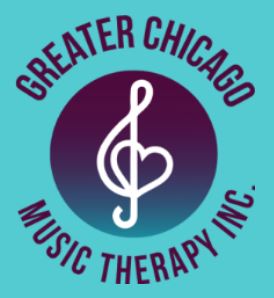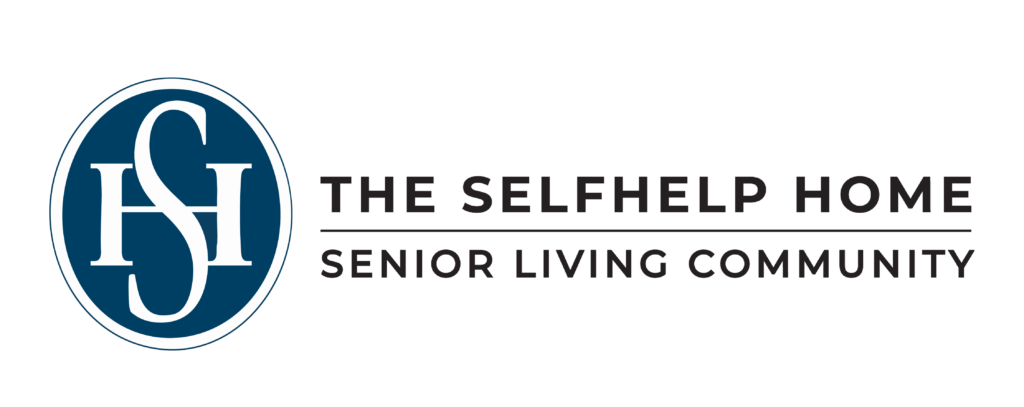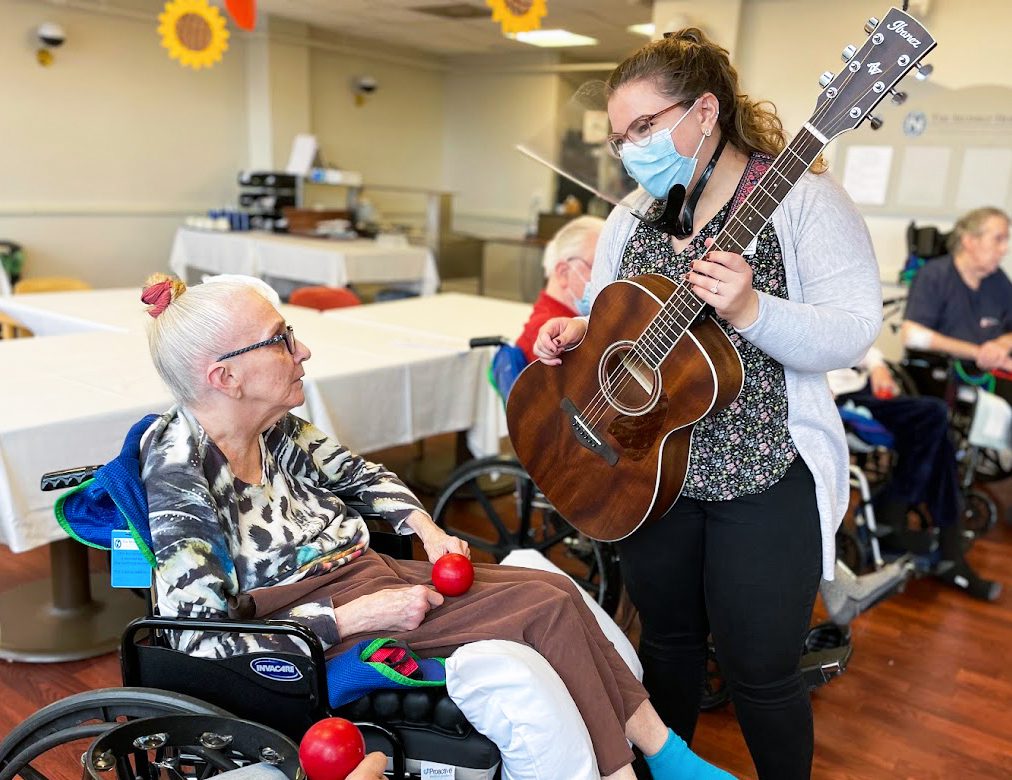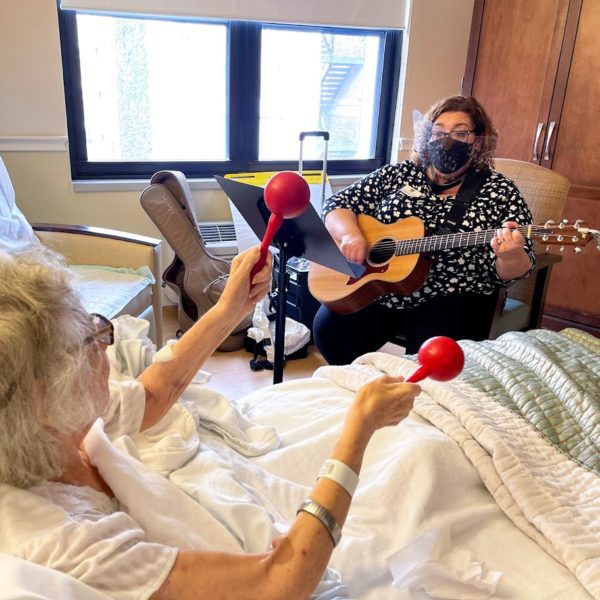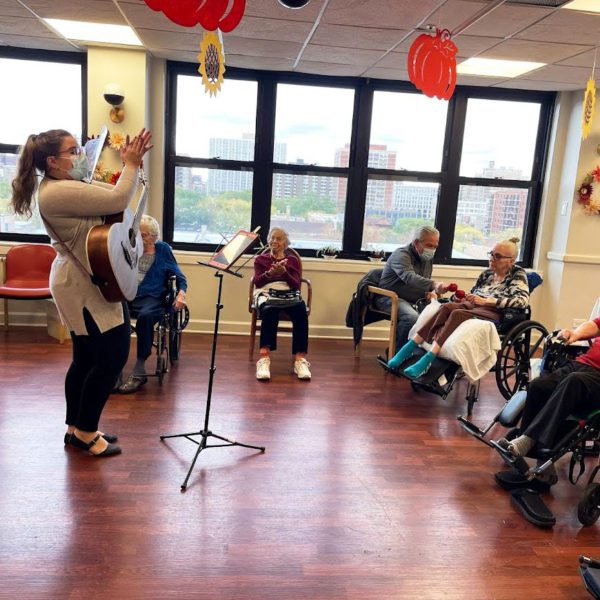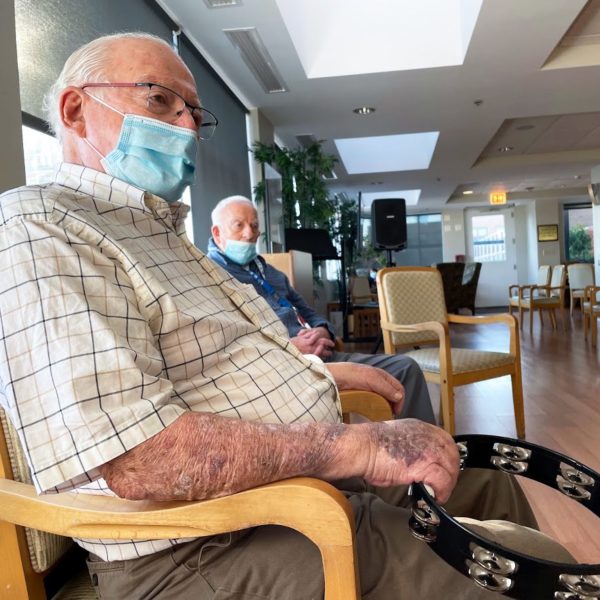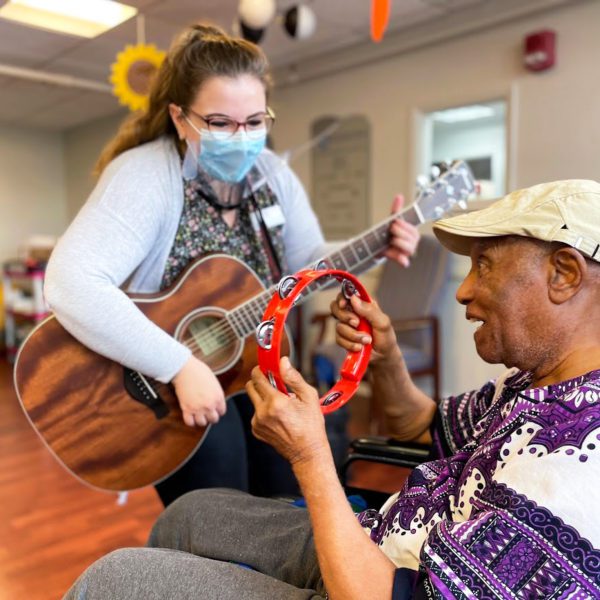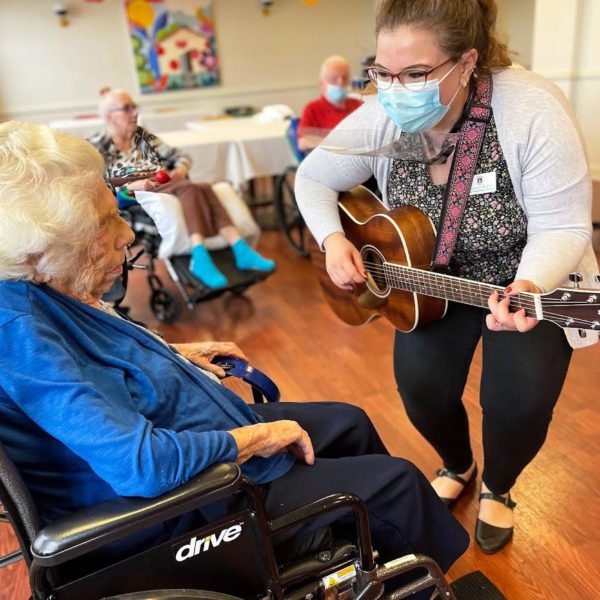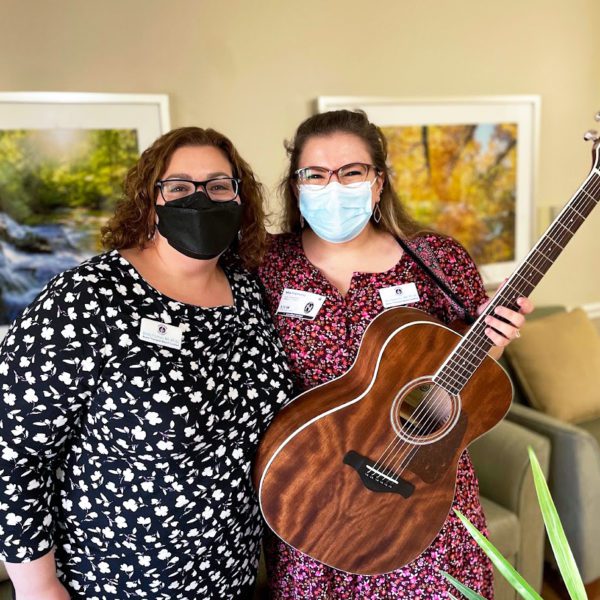🎵 New Music Therapy Pilot at Selfhelp is Funded by The Friedmann/Tuber Program for Cognitive Therapies
The Selfhelp Home is announcing the start of a comprehensive music therapy program for its residents.
The program is being funded under the Friedmann/Tuber Program for Cognitive Therapies and was founded by a generous donation of this two-year grant from Phil Friedmann, honoring Craig and Kay Tuber for their continual aid and support of the Selfhelp Home. The grant also supports an enhanced dementia training for staff, that is also being developed.
“Selfhelp has always been a special place.” Craig Tuber, longtime Board member and supporter of Selfhelp, has seen how different therapies of all types for dementia have changed the lives of residents and their families. “We wanted to give the residents something to directly impact their lives and we feel this program fits perfectly with Selfhelp’s mission.”
In October, Selfhelp contracted with Rebecca Frieman, and Mia Iliopoulous, to provide a multidimensional 2-year program for residents of The Selfhelp Home suffering from memory loss at various stages. Both are masters level board certified music therapists from Greater Chicago Music Therapy Inc. and have strong backgrounds in using music therapy to help older adults across the continuum of care and understand their unique challenges. The Greater Chicago Music Therapy’s goal is to bring exceptional, strengths-based, creative music therapy services to The Selfhelp Home community.
“We are so excited to see people connecting and sharing about themselves with others, actively engaging, and finding joy during music therapy sessions” said Friedman.
The aim of music therapy in individuals with dementia is to address emotions, cognitive powers, thoughts, and memories. It aims to enrich and give freedom, stability, organization, and focus. Musical perception, musical emotion, and musical memory can survive long after other forms of memory and cognitive function have disappeared.
When provided by a professional board-certified music therapist, music therapy can address the psychological, physiological, cognitive, communicative, behavioral, social, sensory, emotional, and spiritual health, wellness, and functioning needs, strengths, and goals of the person receiving the therapy. Studies show music intervention has positive effects on behavior, agitation, mood, and cognition, with one study stating the beneficial effects of individual music therapy on anxiety and depression can last up to eight weeks.
Musical memories are often preserved for individuals even when other memories begin to decline. The aim of music therapy in individuals with memory loss is to address emotions, cognitive powers, thoughts and memories. It aims to enrich and give freedom, stability, organization and focus. In fact, musical perception, musical emotion, and musical memory can survive long after other forms of memory and cognitive function have disappeared.
Music Therapy is:
- Evidence-based, dignified, clinical, and creative interventions to promote expression, behaviors, adaptive/constructive skills, and strategies to enhance well-being.
- Group and Individualized clinical music intervention addressing needs, strengths, and goals relating to psychological, physiological, cognitive, communicative, behavioral, social, sensory, emotional, and spiritual health, wellness and functioning.
Music Therapy is not:
- Only for those with musical talent or skill;
- Solely for activity, boredom, entertainment, education, performance or product;
- One type of music or intervention used for individuals with the same diagnosis, therapy goals, or background; or,
- Listening to favorite music, familiar music, or music from a person’s past experiences.
The Selfhelp Music Therapy Program will include both individual and group sessions with an initial focus dedicated to those dealing with cognitive impairments.
